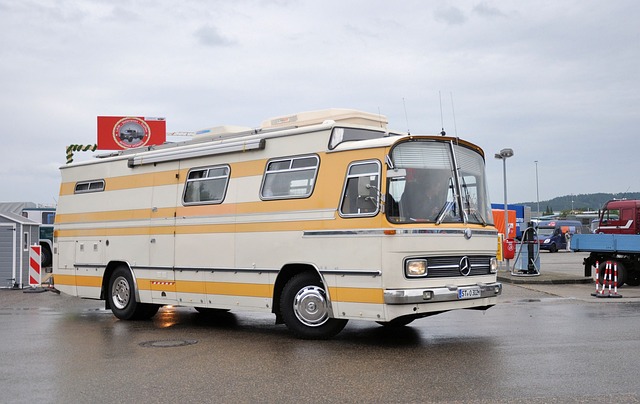Commercial vehicle insurance and personal auto insurance serve different purposes, each tailored to the specific needs of the vehicles and their owners. Understanding the key distinctions between these two types of insurance can help you determine which coverage is appropriate for your situation, especially if you use your vehicle for business purposes.
What Is Commercial Vehicle Insurance?
Commercial vehicle insurance provides coverage for vehicles used primarily for business operations. These vehicles can include:
- Delivery vans
- Trucks
- Taxis or ride-sharing vehicles
- Construction vehicles
The primary goal of commercial vehicle insurance is to protect businesses against financial risks arising from accidents, damages, or liabilities involving their vehicles. Learn more in What Is Commercial Vehicle Insurance and Why Do You Need It?.
What Is Personal Auto Insurance?
Personal auto insurance covers vehicles used for non-commercial purposes, such as commuting, errands, or leisure. It is designed to provide financial protection for individuals and families in the event of an accident or other covered incident.
Key Differences Between Commercial and Personal Auto Insurance
1. Coverage Scope
- Commercial Vehicle Insurance: Offers broader coverage tailored to business needs. This includes higher liability limits and additional coverage options such as:
- Protection for multiple drivers
- Coverage for goods or equipment transported in the vehicle
- Specialized endorsements for specific industries (e.g., ride-sharing or construction)
- Personal Auto Insurance: Focuses on individual use, covering the named insured and their family members. It typically excludes coverage for business-related activities.
2. Liability Limits
- Commercial Insurance: Higher liability limits are standard to account for the increased risks and potential damages associated with business operations.
- Personal Insurance: Liability limits are generally lower, reflecting the reduced risk of personal vehicle use.
3. Policyholders
- Commercial Insurance: The policy is often held by a business entity, covering employees or designated drivers.
- Personal Insurance: The policyholder is typically an individual, with coverage extending to family members or other listed drivers.
4. Vehicle Use
- Commercial Insurance: Designed for vehicles used to generate income or perform business functions, such as delivering goods or transporting passengers.
- Personal Insurance: Excludes coverage for vehicles used for business purposes beyond commuting.
5. Premium Costs
Commercial vehicle insurance premiums are generally higher than personal auto insurance premiums due to:
- Greater liability exposure
- Increased vehicle usage
- Higher coverage limits
For insights into premium calculations, explore How Are Classic Car Insurance Premiums Calculated?.
6. Number of Vehicles Covered
- Commercial Insurance: Can cover an entire fleet of vehicles under a single policy.
- Personal Insurance: Usually applies to a single vehicle, with separate policies required for additional vehicles.
7. Driver Coverage
- Commercial Insurance: Includes coverage for multiple drivers authorized by the business.
- Personal Insurance: Covers the named insured and any additional listed drivers.
Scenarios Where the Difference Matters
Example 1: Delivery Services
If you use your personal car to deliver packages for your business, personal auto insurance may deny a claim for an accident that occurs during a delivery. Commercial vehicle insurance, however, would cover such incidents.
Example 2: Ride-Sharing Drivers
Many personal auto insurance policies exclude coverage for vehicles used in ride-sharing services. Commercial insurance or ride-share-specific endorsements are necessary to protect against liabilities in these scenarios.
Benefits of Choosing the Right Coverage
Commercial Vehicle Insurance
- Higher Protection: Safeguards your business against significant liabilities.
- Tailored Endorsements: Offers industry-specific coverage options.
- Fleet Coverage: Streamlines management for businesses with multiple vehicles.
Personal Auto Insurance
- Cost-Effective: Suitable for non-business-related vehicle use.
- Simpler Policies: Easier to manage for individual or family needs.
How to Choose Between Commercial and Personal Insurance
- Evaluate Vehicle Use:
- If your vehicle is primarily used for business, commercial insurance is essential.
- For occasional commuting or leisure use, personal auto insurance suffices.
- Assess Risk Exposure:
- Businesses face higher liability risks, making commercial insurance a better choice.
- Individuals with minimal risk can opt for personal policies.
- Consult an Expert:
- Speak with an insurance agent to determine the right type of coverage based on your specific needs.
Understanding the differences between commercial vehicle insurance and personal auto insurance is crucial for ensuring adequate coverage. By assessing how your vehicle is used and the risks involved, you can choose the appropriate policy to protect yourself, your business, or your family. Whether you need higher liability limits for a business fleet or simple protection for your daily commute, selecting the right insurance ensures peace of mind and financial security.



